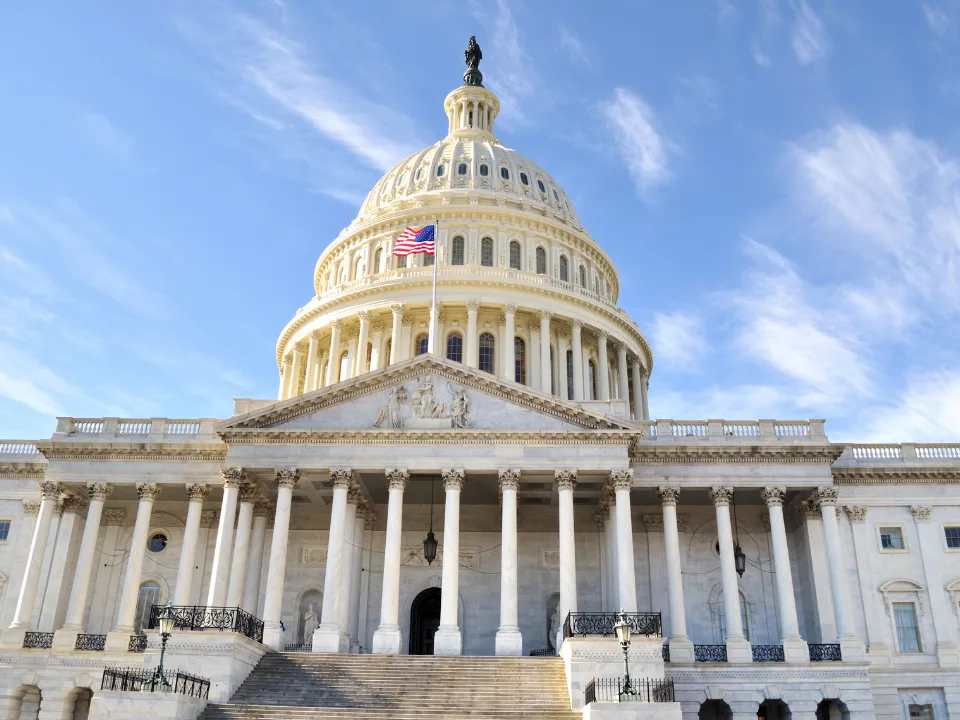U.S. Consumer Confidence Boosts Apartment Market Demand
With the economy improving, consumer sentiment has recently increased, boosting apartment demand.
Together with
Good morning. Rising US consumer confidence is improving apartment demand. Occupancy rates for office buildings are expected to decline even more next year. Meanwhile, Signa Holding, facing bankruptcy, is selling its 50% stake in the iconic Chrysler Building in New York City.
Today’s issue is brought to you by VTS Activate.
👋 First time reading? Sign up.
🎁 Want free merch? Share this.
Share CRE Daily with your colleagues to unlock the Back of the Napkin Multifamily Deal Screener and earn additional rewards.
Market Snapshot
|
|
||||
|
|
*Data as of 12/19/2023 market close.
CONSUMER CONFIDENCE
Consumers Feeling More Confident, Inspiring Apartment Demand
Over the last decade, U.S. consumer confidence and apartment demand have varied considerably. With the economy improving, consumer sentiment has recently increased, boosting apartment demand.
By the numbers: Consumer confidence is closely linked to apartment demand. When consumers are optimistic about the economy, apartment demand increases, as seen in recent trends. Conversely, in times of economic uncertainty or perceived trouble, people tend to limit their spending and mobility, leading to decreased demand for apartments. This pattern was evident during the COVID-19 pandemic and the periods of economic fluctuation that followed.
Apartment demand: The U.S. apartment market absorbed over 90,800 units in the 3rd quarter, a significant number but lower than the pre-pandemic averages. This uptake marks a recovery from the net move-outs in 2022, coinciding with a record low in consumer sentiment. The University of Michigan’s Consumer Sentiment Index, which tracks American spending confidence, had fluctuated dramatically from 2011 to 2023, with a notable dip during the pandemic and a partial recovery thereafter.
➥ THE TAKEAWAY
Why it matters: Despite a stable economy, consumer sentiment in 2022 fell to near 30-year lows due to rising inflation and interest rates. However, 2023 witnessed a positive shift in consumer confidence as inflation eased and economic stability seemed more assured. This improvement in sentiment is not yet at pre-pandemic levels but is on an upward trajectory, leading to increased household formation and, consequently, a boost in apartment demand.
A MESSAGE FROM VTS
Welcome Home with VTS Activate for Multifamily
VTS Activate for Multifamily is an all-in-one solution that connects residents to their community, streamlines operations, and enhances the living experience. Explore our interactive landing page to see how our modern, sleek tech adds to the resident experience in multifamily buildings.
TRENDING HEADLINES
-
Funding the future: Merchant bank BDT & MSD Partners raised $3.2B for a real estate credit fund supporting US borrowers.
-
Making a splash: Foreign investors accounted for 32.4% of NYC buyers in 2023, with Qatar and Japan on top, driving 3x dollar volumes and making NYC the top city for foreign investment.
-
Profit squeeze: Atlanta’s market for trophy office towers, once booming, is experiencing a significant downturn.
-
Building momentum: US housing starts unexpectedly rose to a 6-month high in November, up 14.8% to 1.56M annualized starts.
-
Unlocking doors: NYC Mayor Eric Adams’ $10M “Unlocking Doors” initiative will repair 400 rent-stabilized units for homeless New Yorkers, but landlords question its effectiveness.
-
The land’s bounty: It turns out that organic farming can benefit both the land and investors, with Farmland LP managing 16K acres and $275M in funding.
-
Forging ahead: Hines is developing The Forge at Atlantic Yards, a three-building office campus in Midtown, as a follow-up to its successful Atlantic Yards project leased to Microsoft.
-
Roadblocks to progress: Investors are buying up urban bus terminals in the US, leading to closures and concerns about low-income riders losing access to affordable transit.
-
Swinging for the future: The Baltimore Orioles have agreed to a new lease at Oriole Park at Camden Yards, securing $600M in state funds for stadium improvements.
-
Secrecy shuffle: WeWork seeks to keep its tenant roster private during bankruptcy proceedings, with over 600K customers worldwide.
-
Refi of the day: Aby Rosen secures $1.1B in refinancing for the Seagram Building at 375 Park Avenue, with $350–360M in fresh equity from JVP Management.
-
Storage squeeze: Demand for non-climate controlled self-storage units has decreased due to fewer people moving amid high mortgage rates.
-
Oceanfront oasis: Related Group and BH Group gain control over 8 acres near Diplomat Beach Resort in Hollywood, FL, purchasing a second lot adjacent to the hotel for $21.5M.
-
Real estate retreat: Rising vacancy rates and weakening rental growth are pressuring US REITs, especially in the industrial and office sectors.
FROM BAD TO WORSE
The Downturn of Office Real Estate in 2023 Predicts a Bleaker 2024
PHOTO: DAVID PAUL MORRIS/BLOOMBERG NEWS
Office building owners faced significant challenges in 2023 due to falling demand and high interest rates. While many managed to stay afloat, the upcoming year poses even greater difficulties.
Declining demand: In 2023, the demand for office spaces remained far below pre-pandemic levels, primarily due to adopting hybrid work models. Data from Scoop Technologies indicated that 62% of U.S. businesses allowed partial remote work. This shift and stalled return-to-office rates reported by Kastle Systems and Placer.ai contributed to a persistent decrease in physical office attendance.
Rising vacancies and lease expirations: The U.S. office vacancy rate reached a record high of 13.6% in 2023, up from 9.4% in 2019, with predictions of further increases. CoStar Group anticipates this rate to peak above 17% by 2026. A significant factor in this trend is the nearing expiration of nearly half of the office leases signed pre-pandemic, likely leading to businesses occupying less space.
Loans underwater: Rising instability in the office market poses a significant threat to banks. New data from the National Bureau of Economic Research shows that nearly 44% of office property owners have loans exceeding their property values. This scenario increases the risk of more bank failures on the horizon, with a potential $80 billion in losses from a 10% default rate on commercial real estate loans, which total around $2.7 trillion in bank assets.
Possible silver linings: Developments, including strong demand for premium office spaces and a reduction in new construction, are limiting competition from new supply. Cities like San Francisco, New York, and Boston are encouraging conversions of outdated offices to apartments, potentially revitalizing business districts. However, mortgage delinquency rates have risen to over 6%, a significant increase from less than 1% pre-pandemic, signaling a rise in defaults and distressed property sales.
➥ THE TAKEAWAY
The clock is ticking: With loans expiring, US office owners are losing hope of a rebound in occupancy rates. This will compel more landlords to pay off their mortgages, sell properties at discounted prices, or hand them over to creditors. According to industry experts, right-sizing capital structures and reevaluating property values will be crucial for success in 2024.
AROUND THE WEB
📖 READ: According to WSJ, institutional real estate investors are buying up retail left and right, from grocery stores to pharmacies and everything in between—except for malls.
🎧 LISTEN: Dr. Joseph Ryan Smolarz, founder of STOR, shares his insights on approaching due diligence on a new operator as a limited partner.
🖥️ WATCH: The European Central Bank’s Supervisory Board talks about the banking sector, ‘suffering’ CRE, and the risks of loans maturing in 2024.
DISTRESS SALE
Signa Holding to Sell 50% Stake in Chrysler Building Amid Financial Crisis

PHOTO: GARY HERSHORN/GETTY IMAGES
The iconic Chrysler Building in New York City, co-owned by Austrian firm Signa Holding, is back in the real estate market. Signa Holding, facing bankruptcy, is selling its 50% stake in this Art Deco masterpiece amid financial turmoil.
What happened: Signa Holding, once a prominent Austrian real estate corporation with a portfolio valued at $30 billion, has hit a rough patch to say the least. After acquiring a 50% stake in the Chrysler Building with RFR Holding in 2019 for $151M, the company has now declared insolvency. With debts exceeding €5 billion (about $5.5 billion), the situation for Signa has become dire, leading to the sale of its share in the Chrysler Building as part of bankruptcy proceedings.
Some history: The Chrysler Building, an architectural icon at 405 Lexington Avenue, has been a symbol of New York City since its completion in May 1930. Once the world’s tallest building, it has faced economic challenges in recent years. Its occupancy rate hovers around 80%, and the costly ground lease from Cooper Union has significantly affected its valuation, causing a dramatic decline in value over the last decade. The ground lease costs, set to increase in the coming years, have made it difficult for owners to maintain profitability.
➥ THE TAKEAWAY
What comes next? While Signa faces financial difficulties, RFR Holding, the co-owner of the Chrysler Building, is not directly affected by these issues and has expressed interest in increasing its stake in the property. This situation presents an opportunity for RFR to gain more control over the iconic building, which continues to be an integral part of the New York City skyline despite its financial and occupancy challenges.
CHART OF THE DAY
Apartment insurance premiums are nearly twice as high as they were during the COVID-19 pandemic, with costs up a staggering 119% in the past 4 years across various US markets, including Florida, California, Cleveland, and Memphis.
What did you think of today’s newsletter? |




















